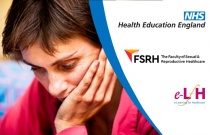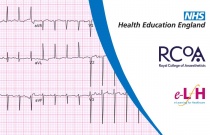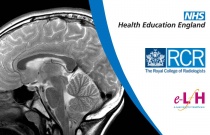Normal Cardiac Anatomy by Echocardiography
Navroz Masani
0.50 Hours
This session provides a description of the normal adult transthoracic echocardiogram (TTE). It cover the modalities of Doppler ultrasound utilised, the standard views, measurements and calculations.
Infective Endocarditis
Oliver Tann, Mark Hamilton and Peter Wilde
0.50 Hours
This session covers the epidemiology, pathophsyiology, radiology and management of infective endocarditis.
Grown-Up Congenital Heart Disease
Peter Wilde
0.50 Hours
This session sets out the basic language and pathophysiology of congenital heart disease. The clinical approach in adult congenital heart disease is described using imaging examples, especially magnetic resonance imaging (MRI).
Mediastinal Nodal Disease
Hilary Moss
0.75 Hours
In this session, we look at identification of normal and abnormally enlarged lymph nodes on the plain chest x-ray (CXR) and computed tomography (CT).
Granulomatosis With Polyangiitis and Other ANCA-Associated Vasculitides
Andrew Thrower, Roderick Robertson
0.50 Hours
This session looks at the clinical and radiological manifestations of the antineutrophil cytoplasmic autoantibody (ANCA)-associated vasculitides in the chest.
Interventions for Colonic Strictures
Andrew Leonard, Brent Drake, Bruce Fox
0.50 Hours
This session reviews the indications, complications and technique of colonic stenting.
Interventions for the Failing Liver Transplant
John Rose
0.50 Hours
This session looks at the clinical background and practical aspects of image guided interventional techniques used in the management of the complications of liver transplantation.
Imaging Assessment of Cervical Spine Trauma in Adults
Paula Richards and Surabhi Choudhary
0.50 Hours
This session discusses cervical spine imaging and the assessment of craniocervical and cervical vertebral alignment. Common injury patterns resulting in cervical spine (C-spine) injury are also described in this session.
Injuries of the Craniocervical Junction
Ramy Mansour MSc FRCR
0.50 Hours
This session describes the normal anatomy of the craniocervical junction (CCJ), the different mechanisms and patterns of injury and the roles of plain x-ray, computed tomography (CT) and magnetic resonance imaging (MRI) in imaging of upper cervical spine.
Gonorrhoea: Natural History and Management
Jonathan Ross
0.50 Hours
This session introduces the key aspects of gonorrhoea, its presentation and management.
Managing Hormonal Side Effects of Hormonal Contraceptives
Elizabeth Kennedy
0.50 Hours
Assessment and management of hormonal side effects in users of hormonal contraceptives.
Managing Bleeding Problems in Hormonal Contraceptive Users
Susie Logan
0.50 Hours
This sessions discusses the management of expected and unexpected short and long-term bleeding patterns associated with different hormonal contraceptive methods.
Drug Addiction, Dependency and Pain - Introduction
James Bell
0.50 Hours
This session describes the key concepts of drug addiction and dependency that relate to patients who are in pain and who also have a history of substance misuse.
Non-pharmacological Approaches to the Management of Chronic Pain in Older People
Clare Clarke and Blair H Smith
0.50 Hours
This session presents a wide spectrum of non-pharmacological approaches to the management of chronic pain in older adults, including the evidence for and against these approaches.
Metacognition
Graham Turner
0.50 Hours
This session aims to raise awareness of how we think and how this in turn can impact upon the service user and others.
Clinical review: The role of the intensive care physician in mass casualty incidents: planning, organisation, and leadership
Peter J Shirley and Gerlinde Mandersloot
0.50 Hours
There is a long-standing, broad assumption that hospitals will ably receive and efficiently provide comprehensive care to victims following a mass casualty event.
Mechanisms and Effects of Raised Intra-Cranial Pressure
Matt Thomas and Alex Manara
0.50 Hours
This session reviews the physiology relevant to intracranial pressure (ICP) and describes the causes and effects of raised ICP. Techniques of ICP monitoring and the use of ICP- and cerebral-perfusion-pressure-guided therapies are discussed.
Methods of Preventing the 'Second Insult' To the Brain
Matt Thomas and Alex Manara
0.50 Hours
This session focuses on the intensive care management of traumatic brain injury, in particular the avoidance of secondary insults and the use of cerebral perfusion pressure guided therapy.
Life Threatening Abdominal Injury
Lisa Munro-Davies
0.50 Hours
This session deals with the assessment and initial management of the patient with life-threatening abdominal trauma.
Is non-operative management safe and effective for all splenic blunt trauma? A systematic review
Industry specialists
0.50 Hours
The goal of non-operative management (NOM) for blunt splenic trauma (BST) is to preserve the spleen. The advantages of NOM for minor splenic trauma have been extensively reported, whereas its value for the more severe splenic injuries is still debated. The aim of this systematic review was to evaluate the available published evi....
Image Interpretation - Plain X-rays of the Adult Chest: Emergency, Lines and Instrumentation
John Tuckett
0.50 Hours
This session focuses on chest radiographs in the Emergency Department and devices seen on chest radiographs. The findings in life-threatening conditions, the indications for devices and the relevant anatomy are described. Mistakes and complications of placement are discussed.
Effects of Pathology on Component Parts of Secondary Pulmonary Lobule on HRCT
John Reynolds
0.50 Hours
This session will consider the normal anatomy of the secondary pulmonary lobule and then consider how various pathological processes alter the radiological appearances of the lobule.
Imaging Neuroanatomy
Sam Stuart and Thomas Booth
0.75 Hours
This session covers neuroanatomy pertinent to the radiology registrar when starting to report computed tomography (CT) head examinations. The topics covered should allow pathology that is identified on CT head examinations to be placed in the correct anatomical location so that accurate reports can be written.
Emergency CT Brain Interpretation
Peter Keston
0.50 Hours
During this session, you will learn about emergency computed tomography (CT) imaging. This session, however, will not cover the detailed imaging interpretation required in all the clinical scenarios discussed. These are covered in other sessions.
























